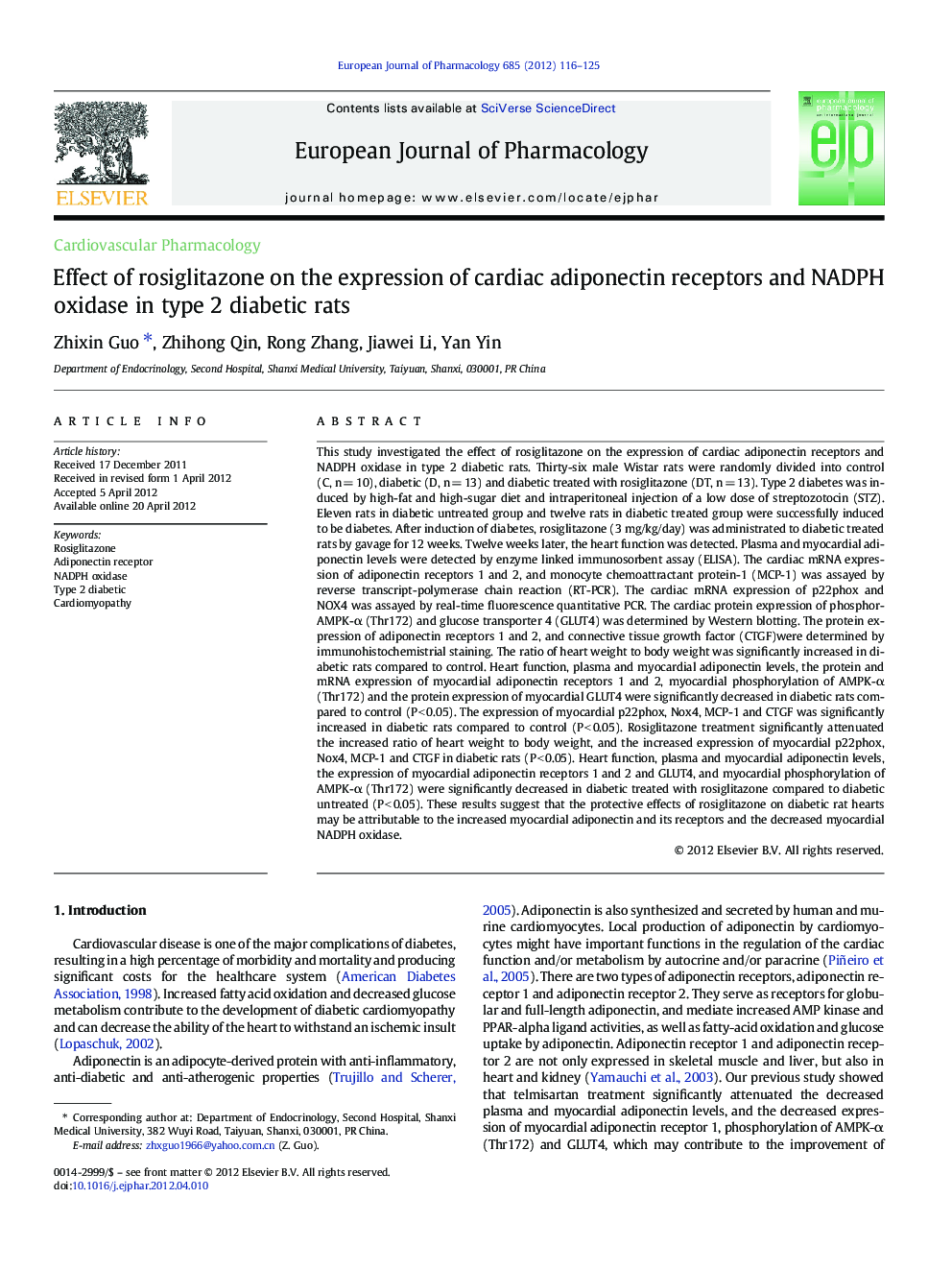| Article ID | Journal | Published Year | Pages | File Type |
|---|---|---|---|---|
| 5829493 | European Journal of Pharmacology | 2012 | 10 Pages |
This study investigated the effect of rosiglitazone on the expression of cardiac adiponectin receptors and NADPH oxidase in type 2 diabetic rats. Thirty-six male Wistar rats were randomly divided into control (C, n = 10), diabetic (D, n = 13) and diabetic treated with rosiglitazone (DT, n = 13). Type 2 diabetes was induced by high-fat and high-sugar diet and intraperitoneal injection of a low dose of streptozotocin (STZ). Eleven rats in diabetic untreated group and twelve rats in diabetic treated group were successfully induced to be diabetes. After induction of diabetes, rosiglitazone (3 mg/kg/day) was administrated to diabetic treated rats by gavage for 12 weeks. Twelve weeks later, the heart function was detected. Plasma and myocardial adiponectin levels were detected by enzyme linked immunosorbent assay (ELISA). The cardiac mRNA expression of adiponectin receptors 1 and 2, and monocyte chemoattractant protein-1 (MCP-1) was assayed by reverse transcript-polymerase chain reaction (RT-PCR). The cardiac mRNA expression of p22phox and NOX4 was assayed by real-time fluorescence quantitative PCR. The cardiac protein expression of phosphor-AMPK-α (Thr172) and glucose transporter 4 (GLUT4) was determined by Western blotting. The protein expression of adiponectin receptors 1 and 2, and connective tissue growth factor (CTGF)were determined by immunohistochemistrial staining. The ratio of heart weight to body weight was significantly increased in diabetic rats compared to control. Heart function, plasma and myocardial adiponectin levels, the protein and mRNA expression of myocardial adiponectin receptors 1 and 2, myocardial phosphorylation of AMPK-α (Thr172) and the protein expression of myocardial GLUT4 were significantly decreased in diabetic rats compared to control (P < 0.05). The expression of myocardial p22phox, Nox4, MCP-1 and CTGF was significantly increased in diabetic rats compared to control (P < 0.05). Rosiglitazone treatment significantly attenuated the increased ratio of heart weight to body weight, and the increased expression of myocardial p22phox, Nox4, MCP-1 and CTGF in diabetic rats (P < 0.05). Heart function, plasma and myocardial adiponectin levels, the expression of myocardial adiponectin receptors 1 and 2 and GLUT4, and myocardial phosphorylation of AMPK-α (Thr172) were significantly decreased in diabetic treated with rosiglitazone compared to diabetic untreated (P < 0.05). These results suggest that the protective effects of rosiglitazone on diabetic rat hearts may be attributable to the increased myocardial adiponectin and its receptors and the decreased myocardial NADPH oxidase.
